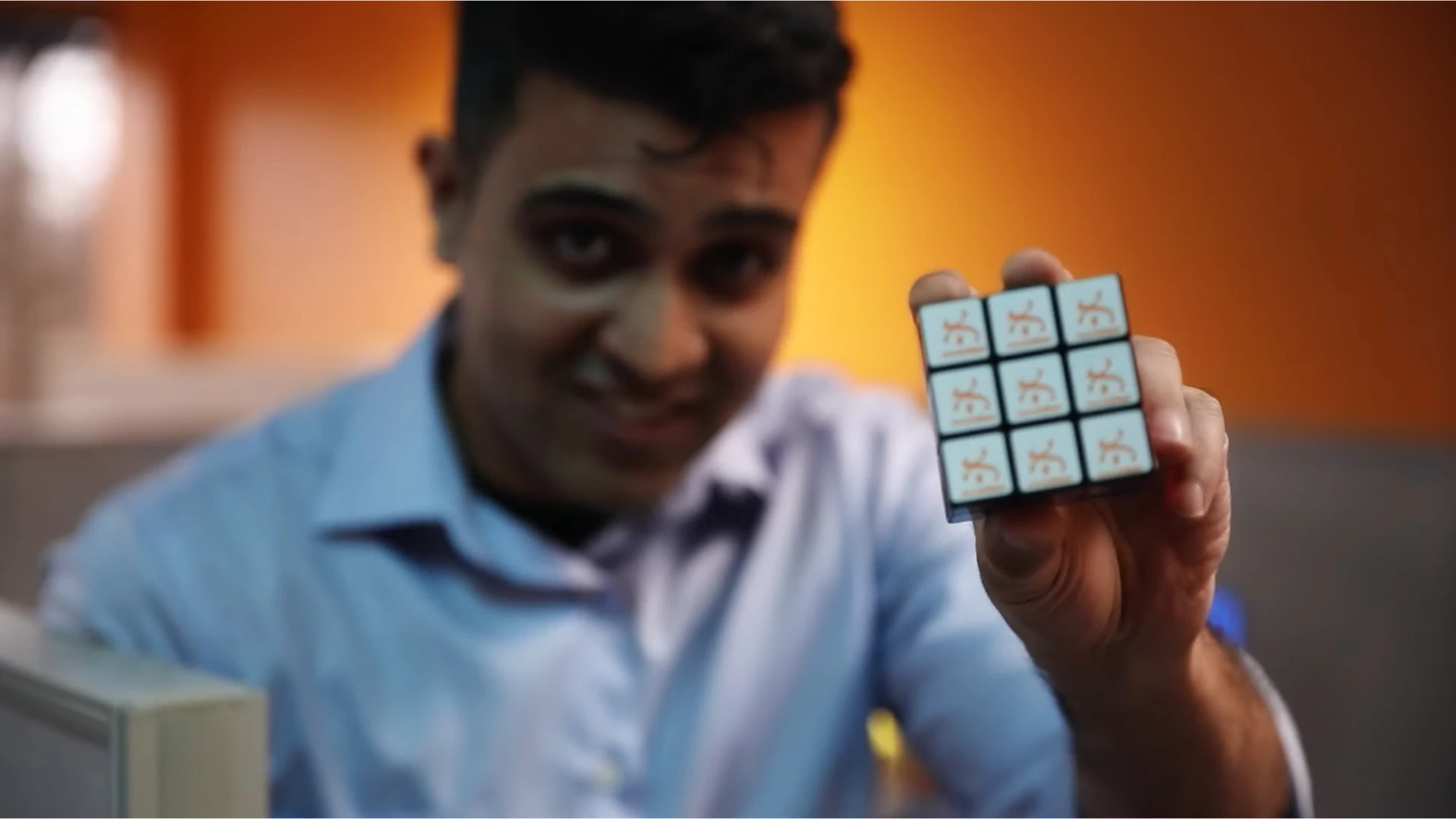Google’s Antitrust Reckoning: Regulating Yesterday’s Search or Tomorrow’s AI?
The digital landscape is never at a standstill. It is constantly evolving.
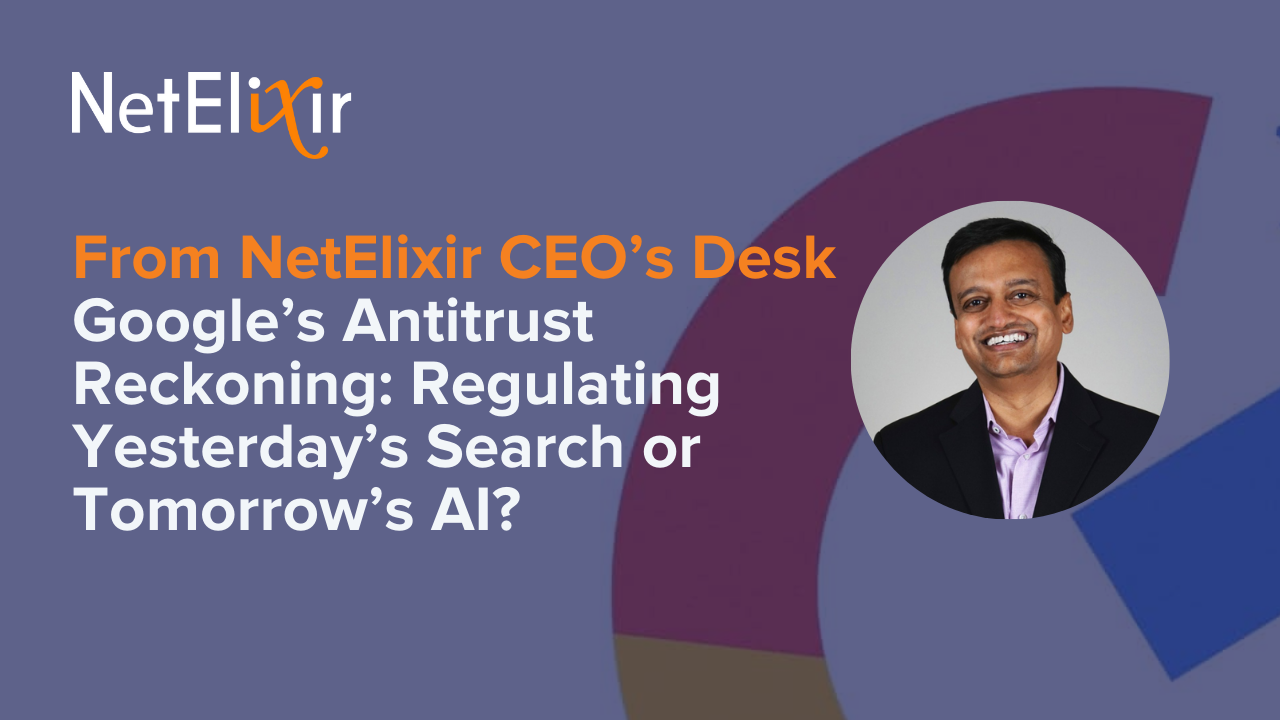
Written by Udayan Bose, Netelixir CEO
This week’s antitrust ruling against Google comes at both a fascinating and complicated time for the digital ecosystem. While the case is largely built around defaults, browser deals, and traditional market share in search, the way consumers seek information is already evolving.
At NetElixir, we’ve observed a massive shift in search behavior: users are moving from “search” to “ask.” Instead of typing queries into a browser, consumers increasingly turn to AI-powered assistants like ChatGPT, Perplexity, and others as their first stop for answers.
The digital landscape is never at a standstill. It is constantly evolving. This week’s ruling is a prime example of how disruption creates both uncertainty and opportunity for advertisers. I wanted to share my perspective on what this means for the future of search, AI, and how brands can adapt.
What’s Really at Stake
From my perspective, the case has three possible outcomes plus an additional path Google will likely fight for:
- Best Case for Google: Light remedies with some compliance costs and minor erosion in pricing power. We estimate a potential $10B-$15B impact.
- Most Plausible: Behavioral remedies like ending default contracts, mandating data-sharing, and limiting exclusive deals. These could trim $30B-$50B annually from Google’s search business.
- Worst Case (Least Likely): Structural divestitures that fundamentally reshape Google’s strategic roadmap, with an impact of $70B-$100B.
- A Possible Delay or Appeal: This could reshape how remedies are designed, especially if consumer behavior continues its shift toward AI-driven search alternatives.
What’s often overlooked in this debate is that the assumptions regulators are making about dominance and default positions may already be outdated. Apple’s integration of ChatGPT into Siri challenges the notion that default deals alone ensure Google’s market power. Similarly, the old publisher ecosystem is less relevant in a world where AI generates answers rather than blue linking to them.
What this Means for Advertisers
Where does this leave advertisers? Conventional wisdom says that antitrust remedies should lower cost-per-click (CPC) and improve return on investment (ROI). However, our NetElixir research tells a different story.
During H1 2025, we saw CPCs rise 16%, even as AI overviews reduced clicks on search listings. Yet when AI Overviews did appear, ad clicks converted at higher rates. This is why advertisers are still willing to pay more per click. Those clicks that they do get are increasingly valuable.
Google knows this, and its recent AI Max initiative illustrates how it can keep CPCs elevated. The opacity of its ad systems helps sustain pricing power, even as user behavior changes.
The Bigger Picture
Will this ruling lead to a breakup of Google? Most likely not. What is more likely is that we will see targeted behavioral remedies: interoperability mandates, bans on default search deals, and perhaps frameworks for publisher compensation in a world dominated by AI-driven content.
The larger question is whether regulators can keep pace with the rapidly evolving landscape. Search is no longer just search. It’s information delivered instantly powered by AI. This ruling isn’t just about Google, it’s about how we, as an industry, define competition, protect innovation, and ensure that consumers and advertisers alike thrive in an AI-first world.
Read more Articles
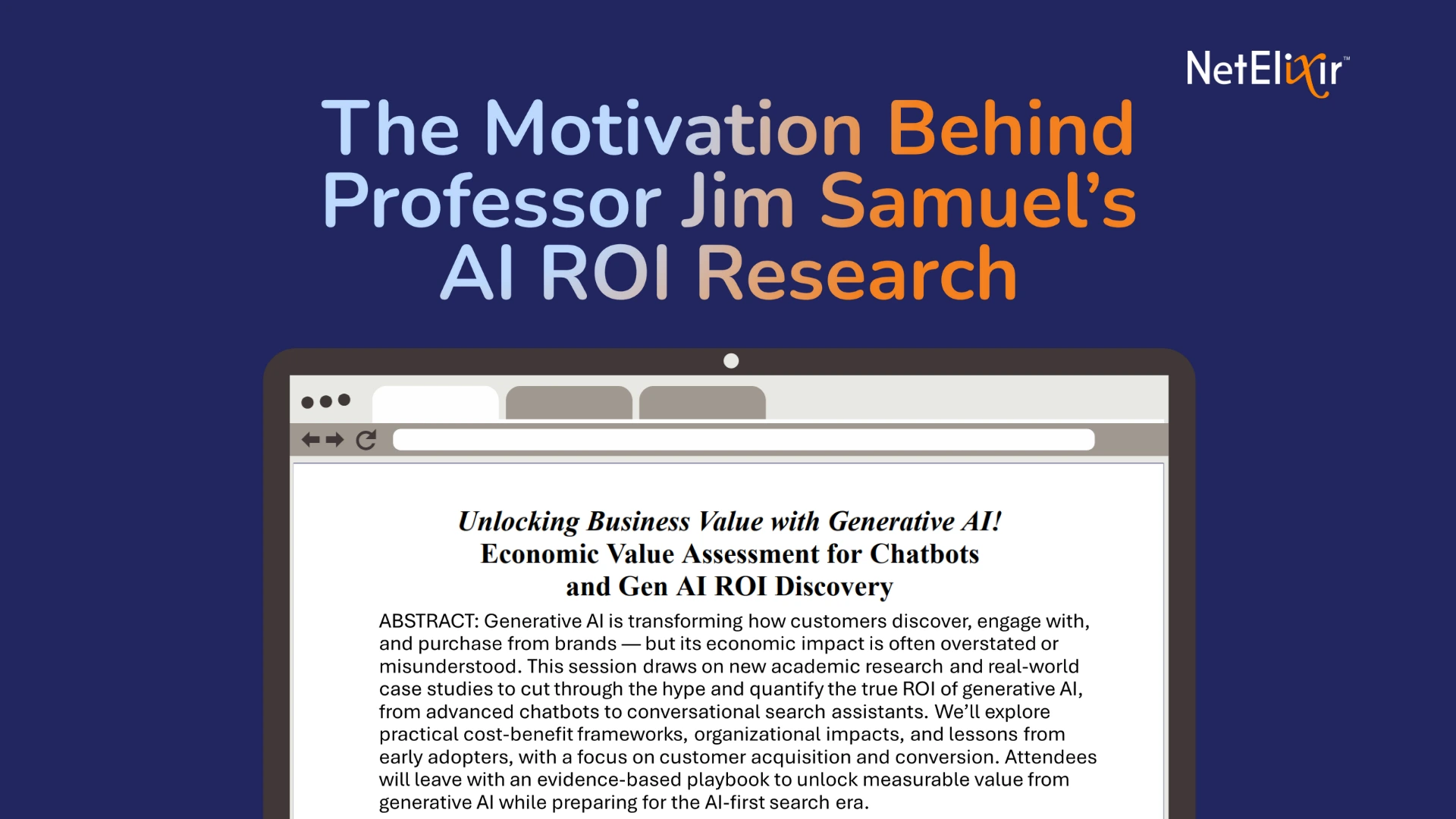
What really drives the ROI of AI? Professor Jim Samuel set out to find the answer.
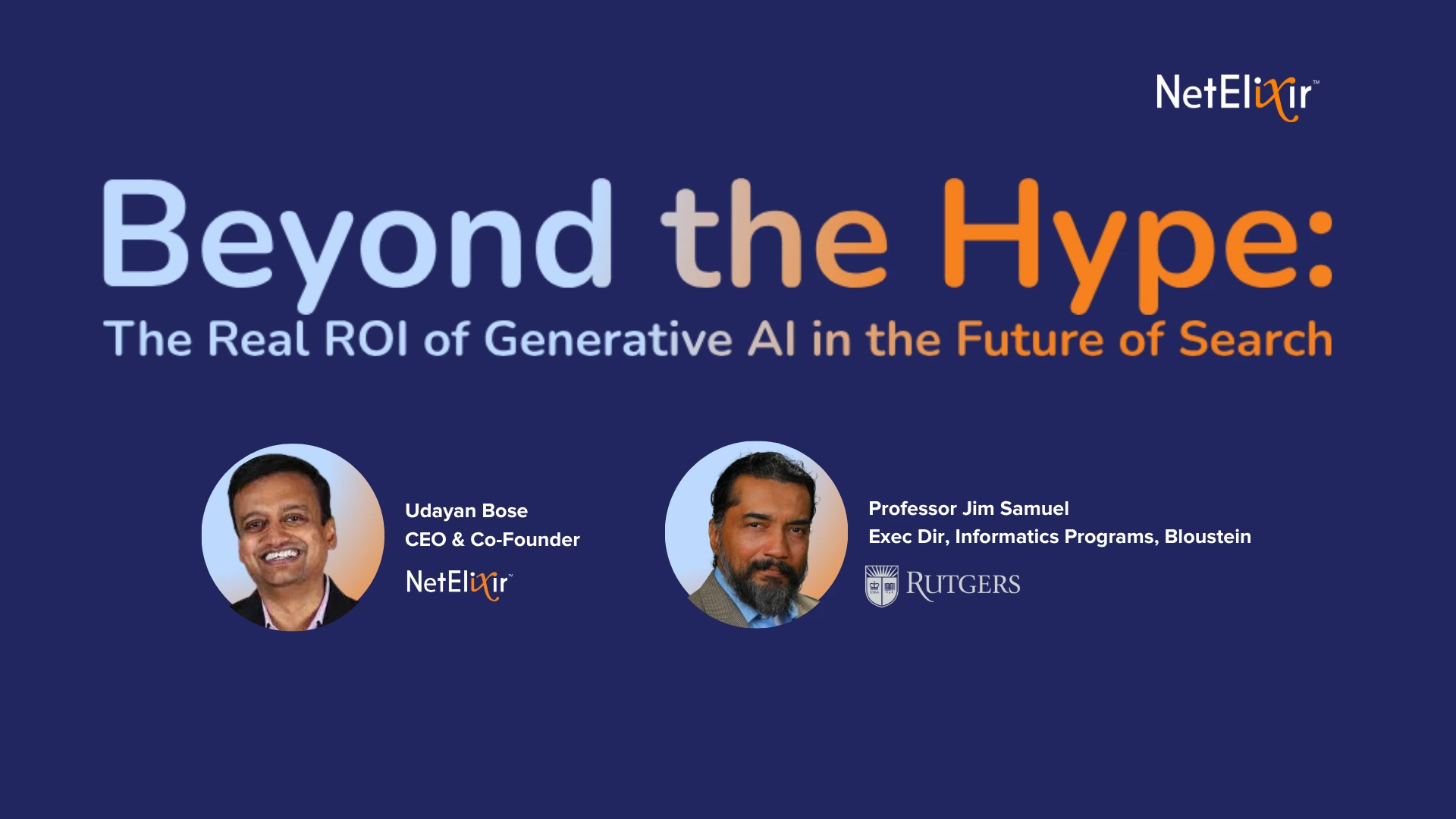
Artificial intelligence isn’t just transforming how we market, it’s redefining how people discover, decide, and act online.
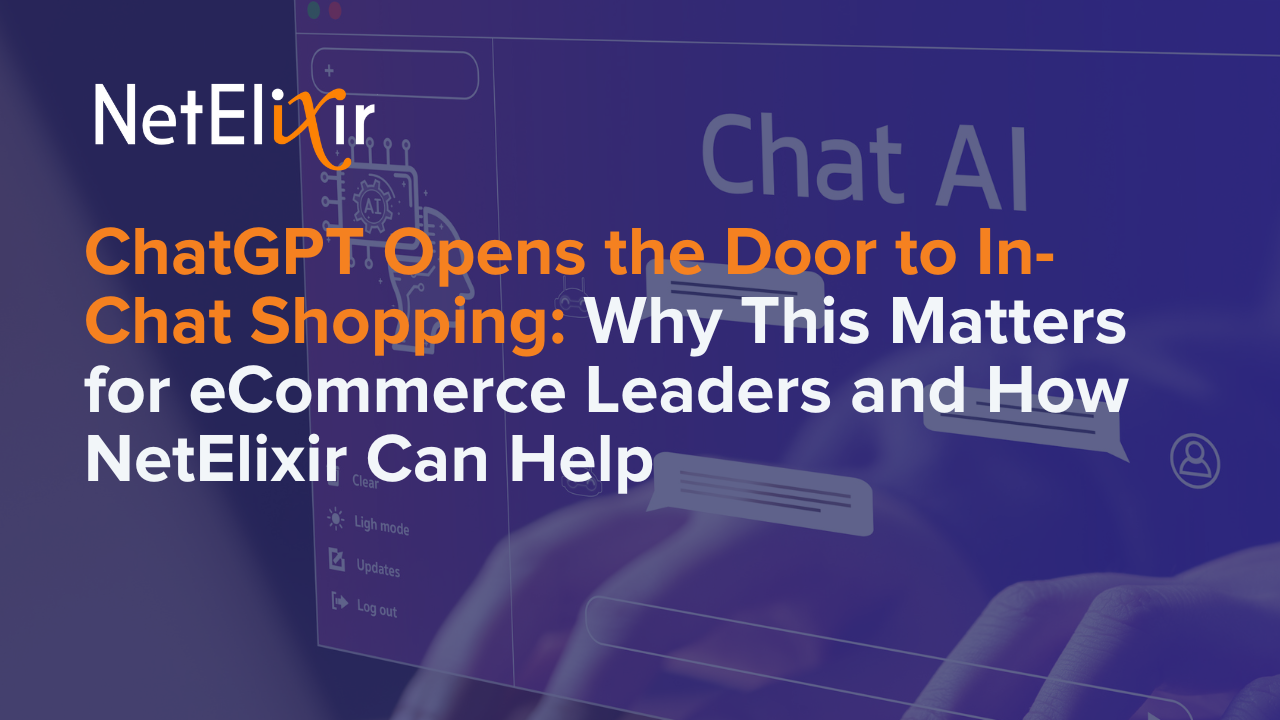
ChatGPT is reshaping online shopping with in-chat commerce. Explore why this matters.
Join the

Community
A space for thinkers and doers. Join us in shaping tomorrow.






